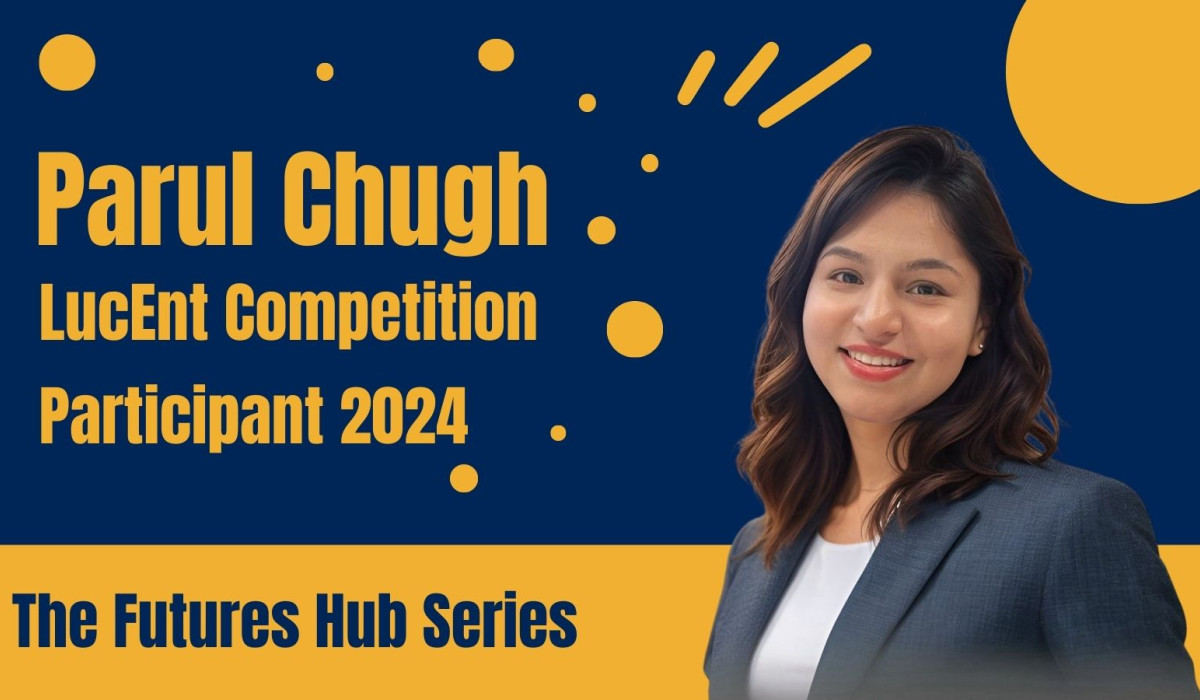In the next article of the series, we speak with Parul who tells us about her enterprise idea and her experience at the Lucy Enterprise Competition
Can you tell me about your background and how you found yourself in Cambridge?
Absolutely! Thank you so much, Tara, for this opportunity. My name is Parul, and I'm from India. Currently, I’m pursuing my MPhil in Bioscience Enterprise at the Department of Chemical Engineering and Biotechnology, here at Cambridge. My journey to Cambridge is quite an unconventional one! Back in India, I completed my Bachelor's and Master's in Biotechnology. Soon after, I received a $70,000 grant from the Government of India to start my own venture focused on cholesterol-lowering probiotics specifically tailored for the Indian diaspora. This project took me from the ground up, from TRL 0 to TRL 7, just before market entry. Although we faced challenges in achieving the desired shelf life, the project was eventually transferred to an industry partner in India, who is now working on enhancing it further.
Before coming to Cambridge, I also worked as an Investment Specialist in the Life Sciences sector with Invest India, which is a part of the Government of India. My role there involved fostering relationships with diplomats and major pharmaceutical companies to encourage foreign direct investment, or FDI’s, into India. However, I decided to return to academia and further my education and entrepreneurial skills here at Cambridge, a place that offers an incredibly supportive and innovative environment.
Can you tell me about your enterprise idea for the Lucy Enterprise Competition? What is it and what plans do you have in the future?
Of course! Our enterprise idea revolves around the issue of menstrual waste management. As you may know, menstrual pads are predominantly made of plastic and can take up to 500 years to decompose. This is a significant environmental concern given that a woman can use approximately 10,000 pads in her lifetime, contributing massively to landfill waste.
We devised a solution to recycle used menstrual pads into useful products. Our approach involves a combination of enzymatic, mechanical, and physical methods to shred the used pads into plastic pellets and cotton pulp. The plastic pellets can be repurposed into items like slippers or dustbins, while the cotton pulp can be utilized in organic farming.
This project has been a collaborative effort. My team includes Nayana, who is also in the Bioscience Enterprise program, and our friends Leo and Maha from the Judge Business School. Although we didn’t win the Lucy Enterprise Competition, our idea was well-received, and we gained incredible mentorship that has propelled us to move forward and enter other competitions. We've won the Audience Choice Award in the Climate Challenge this year and reached the finals in the King's College and Judge Business School Entrepreneurship competitions. Our next steps involve securing further mentorship and investment to bring our idea to market within the next couple of years.
That’s incredibly inspirational Parul! What was your experience at the Lucy Enterprise Competition?
Participating in the Lucy Enterprise Competition was an incredibly enriching experience, and I thought the support and mentorship we received was phenomenal. People like Bruno Cotta, Rachel, and Anna here at the college played a significant role in guiding us and their feedback helped shape our idea and refine our approach. Additionally, the community at Lucy Cavendish College is very close-knit and supportive. Whether it's discussing ideas or getting help with logistics, everyone is willing to lend a hand!
The competition itself was intense, however it brought out the best in us. It allowed us to test our idea in a real-world scenario and gain insights from experienced judges and mentors. Although we didn't win the competition, the experience and the connections we made were invaluable. We’ve been able to use this support to further our project in other competitions and challenges.
One of the highlights of the competition was the encouragement we received, to continue developing our idea despite the challenges. The feedback we got was not just about what we could improve, but also about the potential impact of our project.
Additionally, the supportive environment at Lucy Cavendish College has been instrumental in our journey. The college provides numerous opportunities to connect with investors and mentors, which has been crucial for our progress. For instance, the exposure to investors and entrepreneurs through college events has been immensely helpful. It’s not just about the technical or business advice, but also about the moral support and encouragement to keep going.
Thank you so much, Parul for speaking with me and sharing your story! I look forward to seeing where your idea takes you and your team next!




